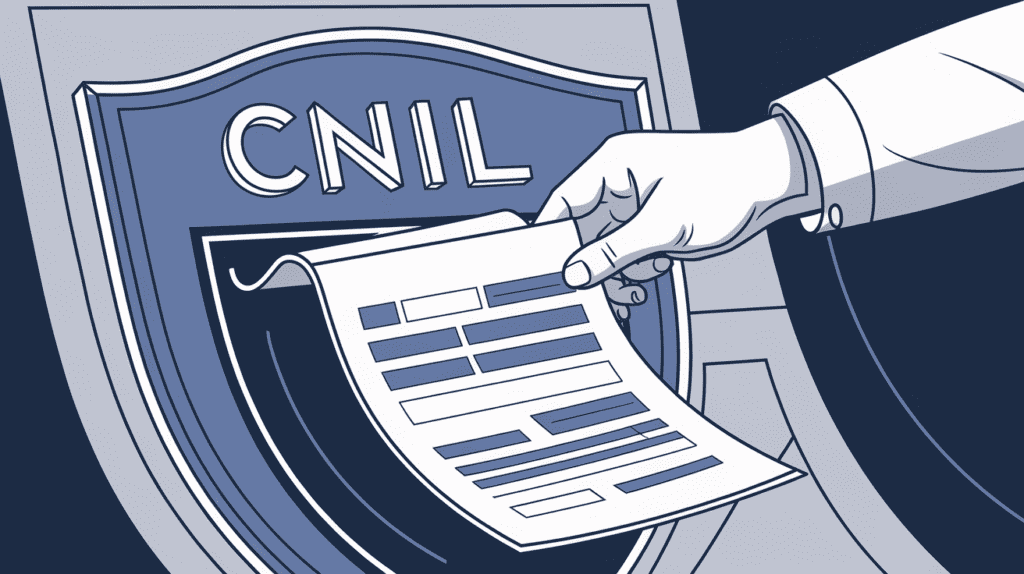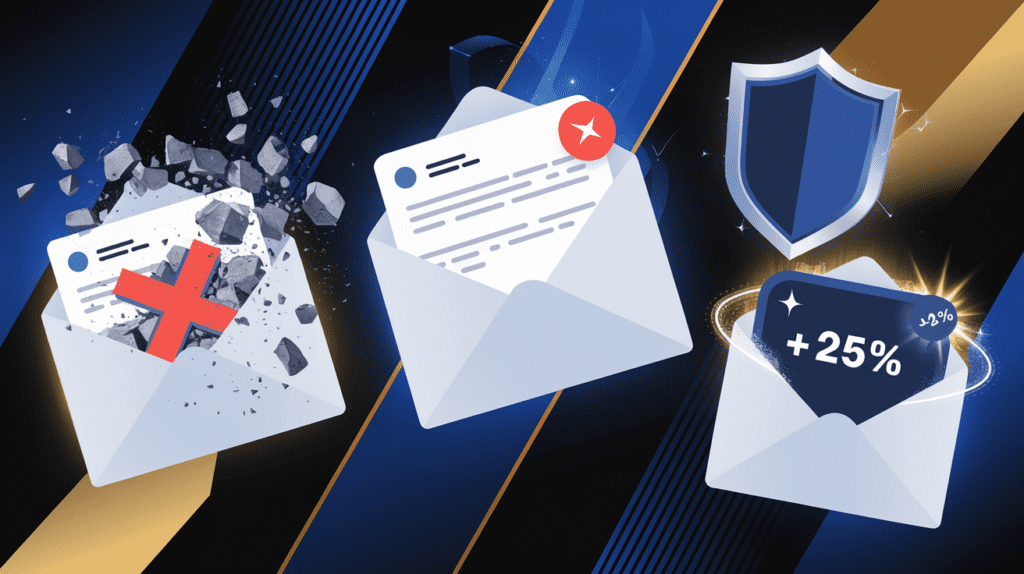- ⚡️ Find out why CNIL complaints have jumped by 32% in one year
- 🛡️ Master the 7 fundamental rights that protect your personal data
- 💡 Use the 3-step method that resolves 80% of disputes amicably
- 🔄 Optimize your complaint file with our step-by-step guide
- 🚀 Speed up the processing of your request with the advice of a GDPR expert
- ✨ Transform your digital vigilance into effective and sustainable protection
The General Data Protection Regulation (GDPR) came into force on May 25, 2018, significantly strengthening the rights of European citizens in terms of the protection of their personal data. Since its application, we have observed a significant increase in complaints related to data protection. According to figures from the National Commission for Information Technology and Civil Liberties (CNIL), the number of complaints increased by 32% in 2019 compared to the previous year. Faced with this reality, it is essential to understand how to effectively exercise your rights and, if necessary, file a complaint with the CNIL. I offer you a detailed guide to help you navigate this sometimes complex but essential process for the protection of your personal data.
Understand your rights and prepare your file

Before taking any steps with the CNIL, it is essential to understand the extent of your rights in terms of personal data protection. The GDPR gives you several fundamental rights that any organization processing your data must respect. These rights include:
- The right to access your personal data
- The right to rectify inaccurate information
- The right to erasure, also known as the “right to be forgotten”
- The right to limit processing
- The right to the portability of your data
- The right to object to the processing of your data
- The right not to be subject to a decision based exclusively on automated processing
Once you have identified the right that you consider to be violated, it is central to gather all the relevant elements to support your complaint. This includes correspondence exchanged with the organization concerned, evidence of the violation of your rights, and any other document that may support your request. It is wise to record these elements in a structured file, thus facilitating their presentation to the CNIL if necessary.
Amicable resolution: essential first step
Before requesting the intervention of the CNIL, it is strongly recommended, or even obligatory in certain cases, to attempt an amicable resolution with the organization concerned. This approach has several advantages:
- It can lead to a quick resolution of your problem
- It shows your good faith and your desire for dialogue
- It can avoid a longer and more formal procedure with the CNIL
To do this, send a written request to the organization, detailing your request in detail and explaining how your rights have been violated. It is important to be clear, concise and factual in your presentation. Don’t forget to attach the relevant supporting documents to your request.
In accordance with the GDPR, the organization has a period ofone month to respond to you. This period can be extended by two additional months in the event of a complex request, but the organization must inform you of this within the month following your initial request.
If, at the end of this period, you do not obtain a satisfactory response or if the organization remains silent, you then have the right to turn to the CNIL to assert your rights. It is essential to keep all proof of your exchanges with the organization, as they will be useful for the rest of the procedure.
| Action | Deadline |
|---|---|
| 1. Sending the request to the organization | D-Day |
| 2. Response time from the organization | 1 month (D+30) |
| 3. Possible extension (complex cases) | 2 additional months (D+90) |
Submit your complaint to the CNIL: procedure and follow-up
If the amicable resolution attempt was unsuccessful, you may then consider file a complaint with the CNIL. This process can be done in two ways: online or by post.
To file a complaint online, go to the official CNIL website (www.cnil.fr) and access the dedicated form. You will need to provide your contact details, details of the organization concerned, a precise description of the situation and attach the relevant supporting documents. This method has the advantage of being quick and allowing easier monitoring of your file.
If you prefer the postal route, write a letter detailing your complaint and attach all the necessary supporting documents. Address your shipment to:
CNIL – Complaints service
3 Place de Fontenoy
TSA 80715
75334 PARIS CEDEX 07
Once your complaint has been filed, the CNIL will examine it. It is vital to note that processing a complaint can take several months, depending on its complexity and the volume of files in progress. During this period, the CNIL may contact you to obtain additional information if necessary.
During my career as a data protection consultant, I had the opportunity to support many SMEs in their compliance with the GDPR. This experience allowed me to note that the majority of complaints filed with the CNIL often result from a lack of communication or ignorance of legal obligations on the part of companies. This is why I cannot emphasize enough the importance of an educational and transparent approach in the management of personal data.
Accountability and vigilance: keys to effective protection
The protection of your personal data does not rest solely on supervisory authorities such as the CNIL. It also requires a constant vigilance on your part. Here are some best practices to adopt to strengthen the security of your personal information:
- Carefully read the privacy policies of the services you use
- Use strong, unique passwords for each account
- Enable two-factor authentication when possible
- Be careful when sharing information online
- Regularly update your software and operating systems
By adopting these habits, you significantly reduce the risk of your personal data being breached. Remember that privacy is a fundamental right, but also a responsibility shared between individuals, businesses and authorities.
I invite you to stay informed of developments in data protection. The regulatory and technological landscape is evolving rapidly, and new threats are constantly emerging. As digital citizens, we must be proactive in defending our rights and promoting an environment safer and more privacy-friendly online.
- How To Use Manufacturing Capacity Planning Tools Effectively - 30 January 2026
- How to Create and Enhance Property Listing Photos for Portals and Displays Using AI - 27 January 2026
- List of the Best OTC Crypto Exchanges in 2026 - 8 January 2026




